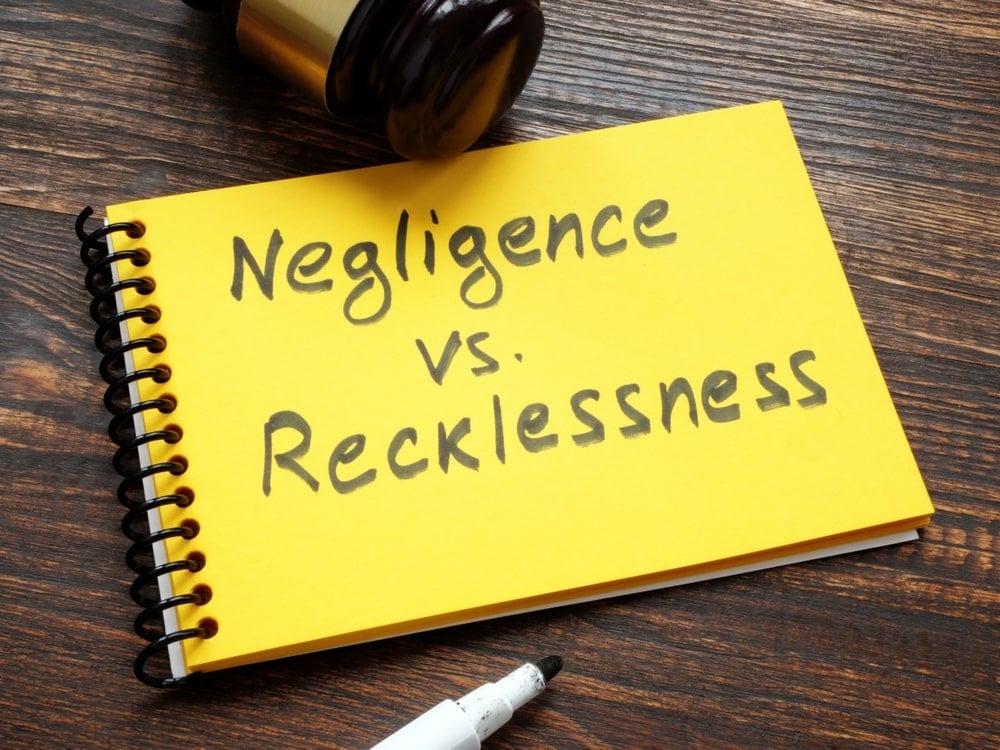BY MICHAEL ‘LEKAN ODUNLAMI
As explained in our previous episodes, personal injury claims can arise either from negligence, strict liability, or intentional wrongdoing like assault (threat of harm), battery (actual harm), false imprisonment, and defamation, either slander (saying) or libel (writing or print).
Today, our focus will be on intentional harm as a form of personal injury claim. When a layman, for example, hears about injury, he thinks about accidents like injury from a road traffic accident, or injury from a fall in a mall, or a careless builder leaving debris on the road, which caused an injury to someone.
Yes! These are injuries, but Injury in law is much wider than these, as you will soon find out in this piece.
Advertisement
In the case of intentional wrongdoing, people get hurt not by accident, but because someone else deliberately did something wrong to them, with or without knowing the full consequences of such an action. This is known in law as intentional wrongdoing, simply because the act is deliberate.
Unlike negligence, in the case of intentional wrongdoing, the person intentionally did what they did, even if they did not anticipate the extent of the consequences of their action or meant for it to cause serious harm to the victim. The law sees these cases as very serious because they involve choice, intent, and purpose of the wrongdoer, rather than focusing on mistake or carelessness, as in strict liability or negligence, as we have abundantly explained in our previous episodes.
As stated earlier, Intentional wrongdoing can happen in one or all of the above situations mentioned above. It is not just about physically hitting someone, perhaps with an object, though that is one clear example, but also covers such acts done on purpose to frighten someone that is capable of causing or anticipating fear to the person, or forcefully taking away someone’s freedom by way of unlawful detention, or damaging someone’s good name by way of saying things and reputation, or spreading false news or rumours about them that are capable of damaging their name.
Advertisement
Although most intentional wrongs have criminal elements to them, as much as civil. It means that most intentional wrongs can also be prosecuted by the State alongside a civil case instituted by the victim in court, where the victim can seek damages (money) from the wrongdoer.
Cases of intentional wrongdoing are very common in Nigeria, like in many other places in the country. These situations occur more often than people might think, and they can all lead to a personal injury claim in court if harm is suffered and the victim pursues the action, but unfortunately, many of us are ignorant of the law in this respect.
For the purpose of clarity, let us imagine two traders at Alaba Market arguing over payment for goods or a service provided. One trader became angry and hit the other individual across the face, thereby breaking his nose. This is a classic case of battery as the action resulted in physical harm and because one trader deliberately meant to hit the other in a harmful way, so the action was intentional. Even if the injury just caused a mere redness of the skin or swelling to the face, the victim can sue because the harm was done deliberately. Similarly, someone threatens to beat up someone and just makes them afraid; that is called assault.
Both are typical examples of intentional wrongdoing and are both actionable in personal injury claims, where the victims can ask for damages in court from the wrongdoer by way of payment of compensation, usually money.
Advertisement
False imprisonment is another form of intentional wrongdoing in a personal injury claim. Let us imagine a security guard at a Shopping Mall in Lekki who locks someone in his small office for an hour or more, because he suspects them of shoplifting, and refuses to let them go or hand them over to the police. The victim did not consent to the detention and had no lawful reason to be detained in that small office, essentially because the security guard had no power of arrest or detention under the law.
This loss of freedom from detention is unlawful, even if detained for a short time; it is enough for the victim to bring a claim for false imprisonment in court to demand compensation from the Mall or the employer of the security guard. That is not to say that a suspected shoplifter cannot be held by a security guard, but such suspects must be handed over to the police as soon as possible.
On the issue of defamation, suppose someone somewhere in Abuja falsely tells neighbours that a lady living next door is a fraudster, just to spoil her name in the community for reasons best known to her, or if someone goes to a Television or radio station to spread damaging news that is false about someone, it is called slander.
If the same person writes it on her Facebook page, WhatsApp, or prints it on flyers, it becomes libel. In both cases, the victim can approach the court to clear their name and claim damages from the wrongdoer because the false words were spread on purpose and have damaged their reputation. This was witnessed recently in Nigeria in the case involving Chief Afe Babalola and Mr. Dele Farotimi, when the former alleged that Mr. Dele Farotimi had libelled him in his book, leading to Mr. Dele Farotimi being detained and charged at the Ekiti Magistrate Court for defamation of character, which attracts a term of imprisonment if found guilty under Ekiti State Criminal Law.
Advertisement
It therefore follows that defamation can attract both civil and criminal actions. In this instance, Chief Afe Babalola can also decide to sue Mr. Dele Faturoti in a civil suit for defamation of character and ask for damages and other reliefs, if he so wishes, but whether the action will succeed is another argument because certain ingredients must be proven for the case to succeed.
Please note that, in addition to filing a civil lawsuit against a wrongdoer for damages, victims of assault, battery, unlawful imprisonment, or defamation are also advised to report the matter to the police. This enables them to pursue criminal action, as the police can investigate the complaint and, where appropriate, charge the offender before a criminal court.
Advertisement
So, if someone has hurt you on purpose, maybe by hitting you, locking you up without reason, or telling harmful lies about you, please don’t keep it to yourself. It’s always a good idea to talk to a personal injury lawyer about what happened. Many lawyers can even help on a “No win, No fee” basis, so you only pay if they win your case, and if they don’t win, you usually don’t pay anything at all. You don’t have to face it alone; help is out there!
In conclusion, intentional wrongdoing in personal injury claims is about someone choosing to harm another person intentionally, whether by hitting, threatening, detaining someone, or spreading lies to damage their reputation by saying or writing. Victims should be aware that they have a right to take such matters to court, not only to get compensation for the pain and losses they may have suffered, but also to hold the wrongdoer accountable.
Advertisement
This article is meant for general understanding. If you believe you’ve suffered harm due to another person’s fault, it’s best to speak with a qualified personal injury lawyer who can guide you based on the facts of your case.
Michael ‘Lekan Odunlami, Esq, is a Lagos-based personal injury lawyer at Claybrook Attorneys. He can be contacted via [email protected]
Advertisement
Views expressed by contributors are strictly personal and not of TheCable.










